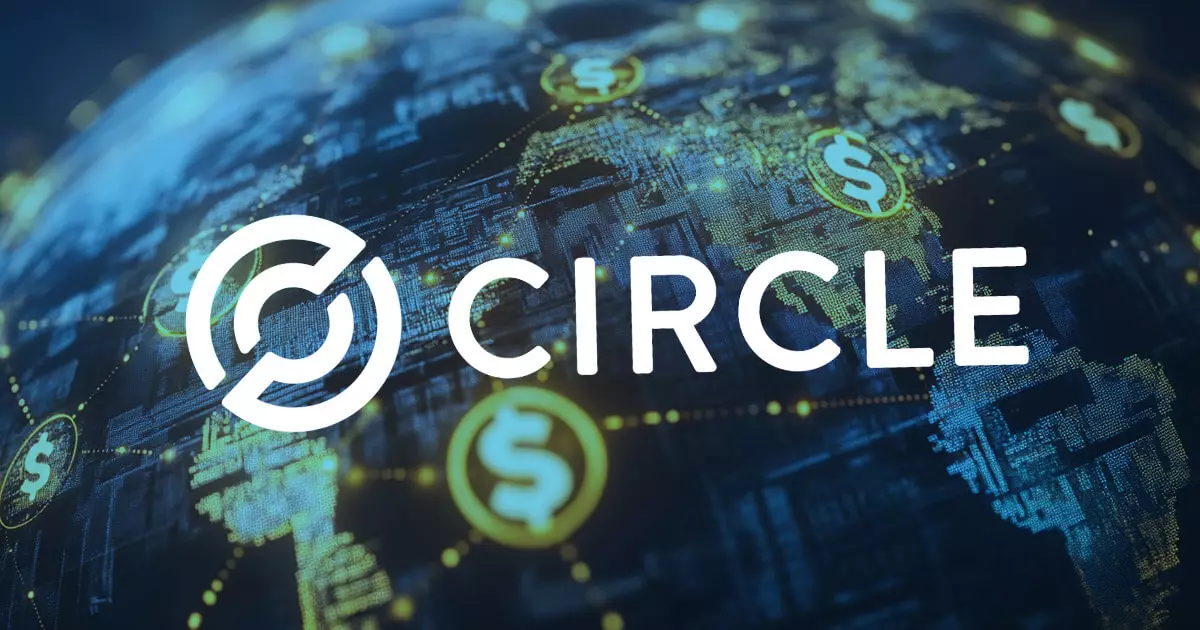The advent of digital assets has ushered in a new era of financial innovation, but it has also brought with it a multitude of regulatory complexities. As governments around the world grapple with how to oversee this emerging sector, businesses need robust mechanisms to ensure compliance. Circle’s recent launch of its Compliance Engine is a significant step toward addressing these challenges. This tool is not just another compliance solution; it represents a fundamental shift in how companies can navigate the intricate landscape of crypto regulations.
The Need for an Integrated Compliance Solution
Traditionally, businesses have relied on disparate third-party solutions to manage regulatory compliance, often resulting in a fragmented approach that can lead to inefficiencies and increased risks. Circle’s Compliance Engine is distinguished by its seamless integration within the company’s existing infrastructure, thereby simplifying the compliance process for organizations involved in the digital asset ecosystem. By consolidating compliance functions into a single tool, Circle eliminates the need for multiple services, enhancing efficiency and reducing the time and effort businesses must invest to meet their regulatory obligations.
One of the standout features of the Compliance Engine is its real-time transaction screening capability. As transactions occur, the engine assesses them against customized compliance criteria, enabling businesses to make immediate decisions about potential risks. This proactive approach allows companies to address compliance issues before they escalate into significant problems.
Additionally, the tool’s ability to perform periodic transaction monitoring helps organizations maintain an ongoing awareness of their transactions, fostering a culture of compliance. Importantly, the Compliance Engine includes provisions to meet the requirements of the Travel Rule, which mandates secure sharing of personal data between virtual asset service providers. This ensures that companies are not only compliant but also protect their users’ privacy.
One of the most compelling aspects of Circle’s Compliance Engine is its customizability. Businesses can tailor the compliance functionalities to their specific needs, defining their risk levels and creating blocklists that align with their operational requirements. This level of personalization puts control back into the hands of the users, allowing them to respond dynamically to their unique challenges.
Moreover, in an industry riddled with regulatory ambiguity, this tool is poised to empower companies to not only comply with current regulations but to stay ahead of future changes. With the ability to adapt compliance measures case-by-case, businesses can maintain agility in an otherwise volatile environment.
Circle’s introduction of the Compliance Engine exemplifies its commitment to trust and transparency—a necessity not just for regulatory compliance but for building long-term relationships with clients and stakeholders. By becoming the first stablecoin issuer to comply with the European Union’s Markets in Crypto-Assets framework, Circle has positioned itself as a leader in the space, actively promoting an environment where businesses can safely innovate without fear of regulatory repercussions.
This move is particularly timely as the scrutiny from regulators intensifies globally. Circle’s proactive stance on compliance could set a precedent in the digital asset market, encouraging other companies to adopt similar measures that prioritize regulatory adherence.
Conversing with Competitors: A Broader Industry Perspective
Circle’s approach contrasts starkly with that of competitors like Tether. While Tether focuses on decentralized principles and the notion of financial independence, Circle leans more towards integration within conventional financial structures. Paolo Ardoino, Tether’s CEO, has publicly shared concerns regarding regulatory compliance, indicating a resistance to fully embrace frameworks that could jeopardize their operational models. This divergence in philosophy highlights an ongoing debate within the industry on the balance between innovation and regulation.
As digital assets continue to evolve, companies like Circle may find themselves more closely aligned with regulatory bodies and traditional finance, while others prioritize a more libertarian approach. This could lead to a bifurcation within the industry, creating opportunities for partnerships or competitive tensions based on differing compliance philosophies.
The launch of Circle’s Compliance Engine is more than just an innovative tool; it represents an essential evolution in how businesses can navigate the complexities of regulatory compliance in the digital asset realm. By prioritizing flexibility, efficiency, and integration, Circle is helping to lay the foundation for a more transparent and compliant future. As regulatory scrutiny increases, companies that embrace similar proactive strategies will be better equipped to thrive in an environment where compliance is not merely a requirement but a competitive advantage. In this landscape, understanding the nuances of regulatory obligations will be crucial for sustainable growth and innovation.


Leave a Reply